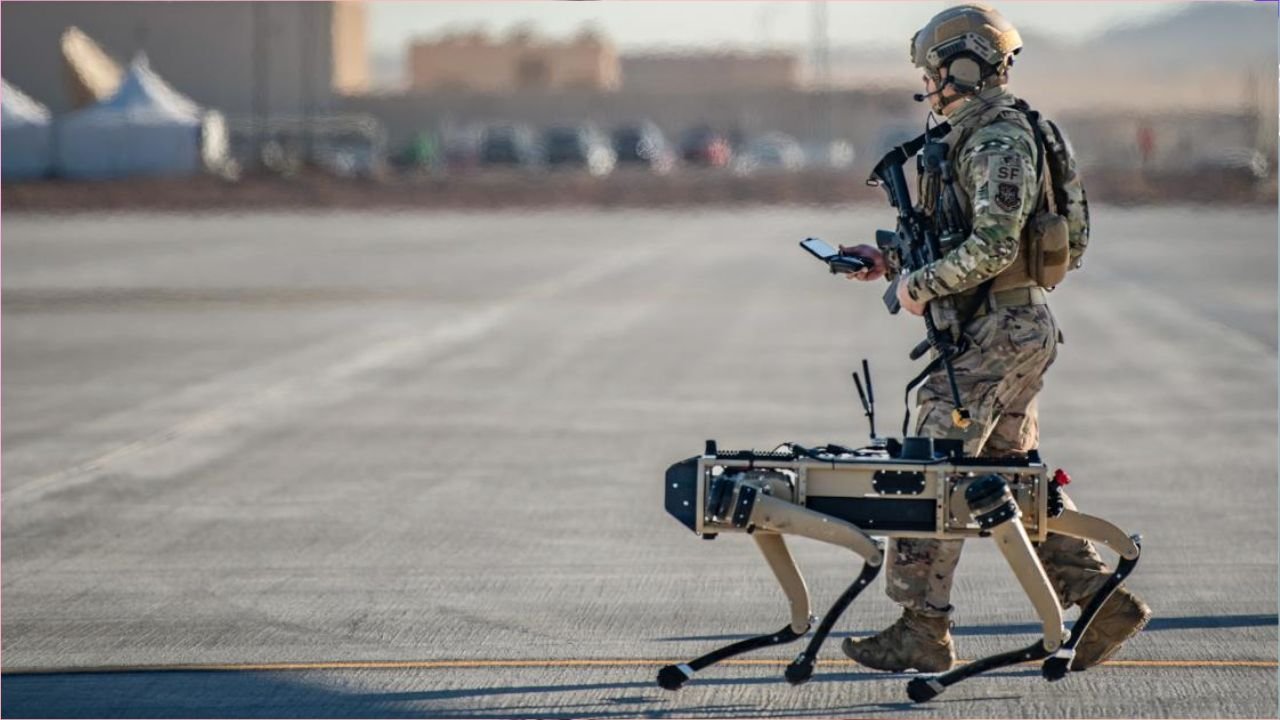The future of the battlefield is not more boots, bullets, and battle maps, but is fueled by sensors, data streams, satellite feeds, and predictive algorithms. National security is increasingly dependent on technological superiority, which makes AI training for military leaders something other than relevant; it is necessary.
But there’s a general concern: Will AI dominate the human aspect of command? Will it render generals useless? The answer is no. AI isn’t eliminating leadership, it’s enhancing it.
And with the support of the right AI solution provider, you don’t have to forfeit classic strategic thought to adopt next-gen tools. You simply have to modernise it.
Consider AI Your Battlefield Strategist
Forget the sci-fi vision of AI as a war machine. Imagine it as your constant strategic analyst who does not sleep, forgets, or miscalculates.
This virtual resource:
- Analyses enemy movements in real time
- Forecasts logistics shortfalls
- Identifies mission-critical weaknesses
- Synthesises intelligence from multiple sources
AI is a live aide-de-camp, not to decide on behalf of commanders, but to deliver them more rapid, clearer, and more context-understanding insights. With such qualified AI solution specialists as AI First Mindset, this assistance is built into command structures.
Why the Military Requires AI Literacy Today
From drone operations to cyber defence and autonomous vehicles, AI is already part of military equipment. Yet technology is not sufficient. Decision-makers need:
- Understand how AI makes decisions (and when it fails)
- Know how to question outputs from AI systems.
- Factor in ethics, bias, and compliance in deployment
A comprehensive AI training for the military officers helps bridge this gap. It equips them and decision-makers with the tools to lead teams in AI-enabled environments, ensuring that leadership is not lost in translation.
AI Doesn’t Replace Command. It Enhances It.
The chain of command doesn’t disappear with AI; it transforms. With trained leaders, AI is:
- A force multiplier
- A risk assessment engine
- A mission planner’s best friend
For instance, in logistics, AI can suggest routes for supply chains that are optimal. In battlefield awareness, it processes drone imagery more quickly than human analysts. But it still requires a commander to interpret, act, and be held accountable.
AI doesn’t take away the burdens of command. It brings crystal clarity to it.
From Sim to Strategy: How AI Training Begins
The most effective AI training for military commanders doesn’t begin with code. It begins with-
- Simulated war games enriched with AI systems
- Case studies drawn from allied defence forces
- Data-driven strategic exercises
Through the aid of an AI solution provider, such training is experiential, scenario-driven, and leadership-oriented. Officers learn not only how to employ AI, but how to question, fine-tune, and lead with it.
AI and Cyber Warfare Preparedness
Warfare today is just as much about networks as it is about navies. State and non-state actors are increasingly posing cyber threats. Trained military commanders with AI capability can:
- Early detection of phishing and ransomware attacks
- Cyber incident response procedures automate
- Cyberattack scenarios are simulated for quicker readiness.
Military commander training in AI involves courses on digital defence, where the commanders learn how to respond fast in physical and cyber space.
Questions Every Military Leader Should Be Asking
- Where are our blind spots with AI in our current ops?
- Are we gathering the right data in our systems?
- Is our decision-making slowing down because we’re getting too much information?
- How do we align AI with the rules of engagement?
- What if the algorithm gets it wrong in high-risk missions?
These are the questions that strategic readiness rests upon. And a holistic AI training gives you the capability to answer them.
Building Confidence in AI-Driven Operations
Leadership in the military is constructed around discipline, order, and precision. Confidence in AI platforms requires the same discipline.
With proper training:
- Teams are instructed on how AI makes decisions
- Fail-safe features are grasped and implemented.
- Scenario simulations reduce reliance on black-box technology.
The result? AI systems are trusted, but not blindly followed. And accountability is where it belongs with leadership.
AI Isn’t Just for the Battlefield. It’s for the War Room Too.
The applications of AI go far beyond the battlefield. AI-learned leaders can use AI to:
- Model diplomatic negotiations
Optimise budget reallocation across defence verticals. - Anticipate geopolitical threats
- Streamline joint force planning with predictive models.
AI is the ultimate defence planning, policy analysis, and interagency collaboration assistant. But only if the leaders are willing to direct it.
Still Sounds Too Complicated? That’s Why You Need Guidance from the Right Place.
With a trusted AI solution partner like AI First Mindset, you have:
- Tailored curriculum for defence application
- Guaranteed assistance from both tech and tactical veterans
- Ethics-oriented frameworks for secure deployment
- Modular learning for different levels of leadership
You don’t have to build a data lab. You have to create the right mindset. What you can achieve post-training is that you leave with:
- Greater confidence in AI-driven decision-making
- Decision frameworks for assessing AI tools and providers
- A plan for implementing AI in base-level operations
- A stronger link between leadership, technology, and strategy
- Ongoing collaborations with AI mentors and advisors
And above all, perhaps, you learn resilience. Because wars are fought with guns, but won through wisdom.
Conclusion: The Battlefield Is Changing. So Must We.
A military leader’s AI training isn’t just an upgrade for technology’s sake. It’s about preparing our defenders to face a more complex, data-driven, and uncertain world.
With partners like AI First Mindset, a leading AI solution provider to the defence sector, you’re not only adopting technology. You’re adopting a strategic edge.
You don’t lose the mission. You gain understanding. And in the world we live in today, that’s the greatest force multiplier of all.



